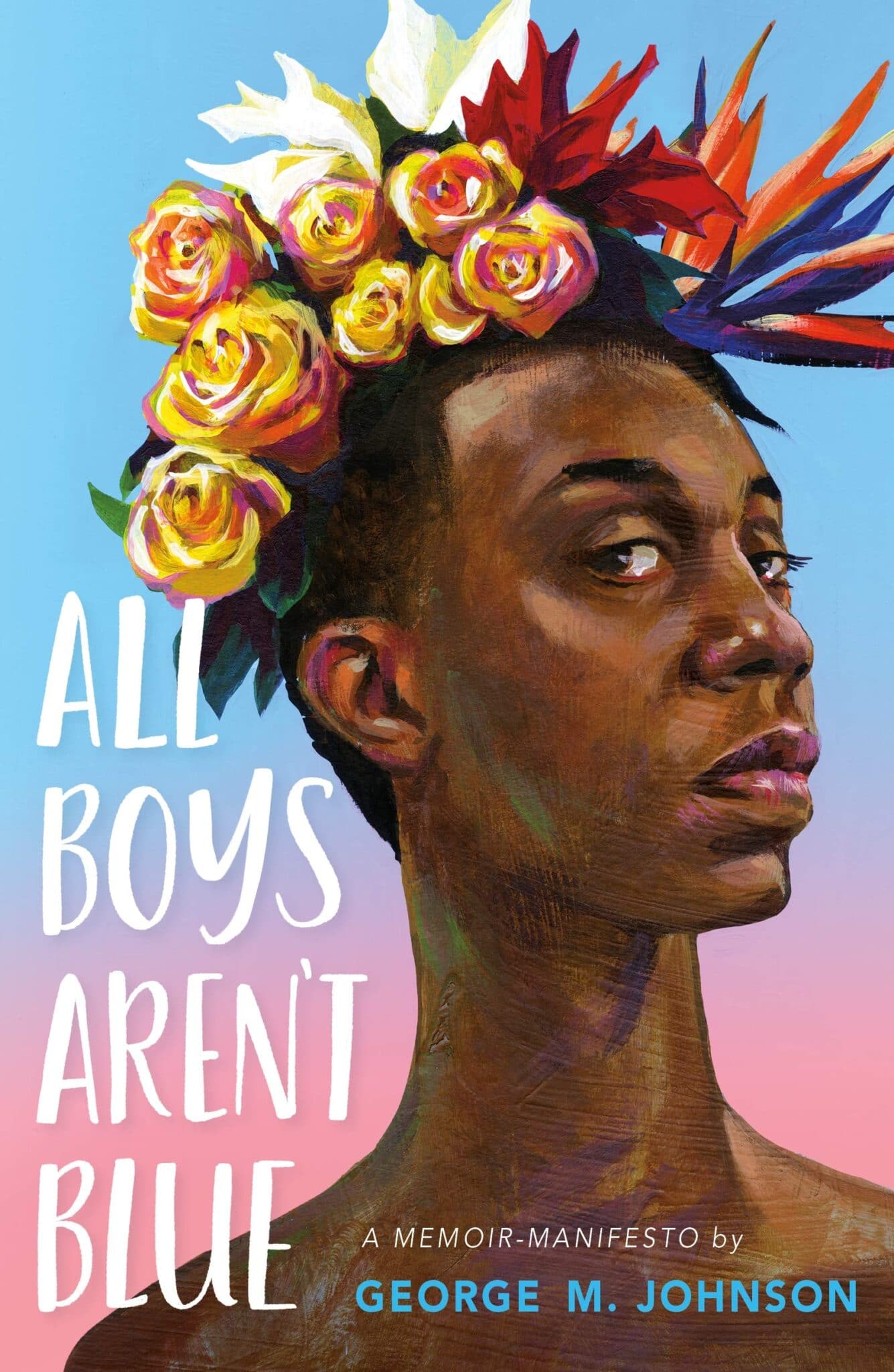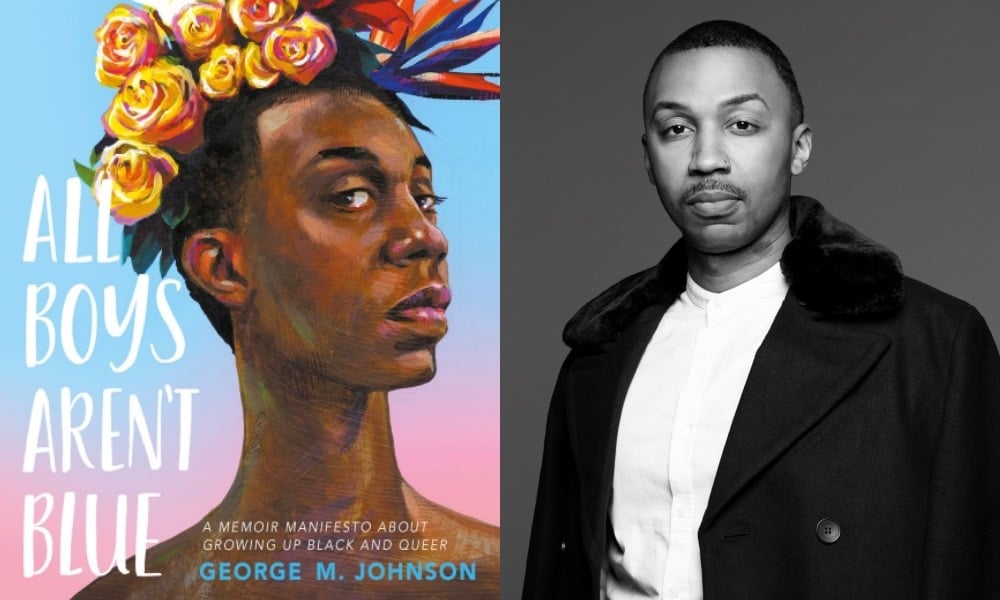George M Johnson is the author of All Boys Aren’t Blue. (Penguin)
LGBT+ authors have dominated a list of most-banned books in the United States, a study by PEN America has found.
PEN America tracked bans involving titles by 874 different authors in school libraries and classrooms in the United States from July 1, 2021 to March 31, 2022.
The most-banned book was Gender Queer: A Memoir, which recounts Maia Kobabe’s “aching journey toward reconciliation with being non-binary and asexual”. It was banned 30 separate times.
Banned 21 times was All Boys Aren’t Blue by George M. Johnson, a memoir about growing up queer and Black in America.
The top five was rounded out with Lawn Boy by Jonathan Evison, Out of Darkness by Ashley Hope Pérez and The Bluest Eye by Toni Morrison, which all explore topics of race. At number six was Beyond Magenta: Transgender Teens Speak Out by Susan Kuklin.
The study found that 1,145 unique book titles were affected by banning, and that books dealing with LGBT+ topics or with queer protagonists were most often affected.
“Titles that deal explicitly with LGBTQ+ topics, or have LGBTQ+ protagonists or prominent secondary characters have been a major target in the current wave of book bans,” the organisation wrote.
“This is reflected in the Index, with 379 such titles (33 per cent), including a distinct subset of 84 titles that deal with transgender characters and topics (seven per cent).”
The organisation also stated that books with a protagonist of colour also made up a “significant part of banned books”.
Forty-one per cent of titles had protagonists or prominent secondary characters of colour, with 22 per cent addressing issues of race and racism directly.
In this morning’s hearing, @repraskin mentioned PEN America’s newly released report, which finds “that from July 1st of last year to March 31st of this year, there were 1,586 book bans that were implemented across 86 school districts in 26 different states.”
— PEN America (@PENamerica) April 7, 2022
It said: “The move to ban both fiction and non-fiction books dealing with diverse characters and experiences – including racial, ethnic, and religious identities; gender identities and sexual orientations – reflects a backlash against attempts to bring a more diverse and inclusive set of voices and perspectives into the curriculum.
“This impacts students with these identities who may feel excluded; but also the opportunity for all students to learn about difference.”
PEN America said in its study that the “draconian” tactic of banning books in schools represents an “unacceptable attack on First Amendment freedoms fundamental to democracy.”
It added: “Learners of all ages benefit tremendously from having access to diverse stories and histories in literature…
“Public school districts that ban books risk creating an environment in which students feel excluded, and failing in their responsibility to educate young people to be informed citizens of a pluralistic and diverse society.”

– Maia Kobabe, author of Gender Queer, told The Washington Post: “Removing or restricting queer books in libraries and schools is like cutting a lifeline for queer youth, who might not yet even know what terms to ask Google to find out more about their own identities, bodies and health.”
George M Johnson’s book has been banned in libraries in more than ten US states including Texas and Virginia. They told PinkNews in November 2021: “Children and youth have rights too, and the library is for the public. No individual should be restricting what another can have access to.
“Furthermore, youth need to feel seen in books, and my book provides that for a lot of Black queer youth and non-Black queer youth.
“This book helps those who may not have a shared experience learn about those who also exist with them in this world.”
In a statement in February, US President Joe Biden said: “I want every member of the LGBTQI+ community – especially the kids who will be impacted by this hateful bill – to know that you are loved and accepted just as you are.
“I have your back, and my administration will continue to fight for the protections and safety you deserve.”
